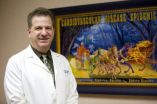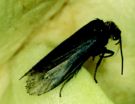(Press-News.org) More and more people have become aware of the dangers of excessive fructose in diet. A new review on fructose in an upcoming issue of the Journal of the American Society of Nephrology (JASN) indicates just how dangerous this simple sugar may be.
Richard J. Johnson, MD and Takahiko Nakagawa, MD (Division of Renal Diseases and Hypertension, University of Colorado) provide a concise overview of recent clinical and experimental studies to understand how excessive amounts of fructose, present in added sugars, may play a role in high blood pressure, diabetes, obesity, and chronic kidney disease (CKD).
Dietary fructose is present primarily in added dietary sugars, honey, and fruit. Americans most frequently ingest fructose from sucrose, a disaccharide containing 50% fructose and 50% glucose bonded together, and high fructose corn syrup (HFCS), a mixture of free fructose and free glucose, usually in a 55/45 proportion. With the introduction of HFCS in the 1970s, an increased intake of fructose has occurred and obesity rates have risen simultaneously.
The link between excessive intake of fructose and metabolic syndrome is becoming increasingly established. However, in this review of the literature, the authors conclude that there is also increasing evidence that fructose may play a role in hypertension and renal disease. "Science shows us there is a potentially negative impact of excessive amounts of sugar and high fructose corn syrup on cardiovascular and kidney health," explains Dr. Johnson. He continues that "excessive fructose intake could be viewed as an increasingly risky food and beverage additive."
Concerned that physicians may be overlooking this health problem when advising CKD patients to follow a low protein diet, Dr. Johnson and Dr. Nakagawa recommend that low protein diets include an attempt to restrict added sugars containing fructose.
INFORMATION:
Disclosures: Dr. Johnson and Dr. Nakagawa are listed as inventors on several patent applications related to lowering uric acid for the treatment or prevention of hypertension, diabetes, and fatty liver. Dr Johnson has also published a book, The Sugar Fix that covers this topic for the general public.
The article, entitled "The Effect of Fructose on Renal Biology and Disease," will appear online at http://jasn.asnjournals.org on November 29, 2010, doi 10.1681/ASN.2010050506.
The content of this article does not reflect the views or opinions of The American Society of Nephrology (ASN). Responsibility for the information and views expressed therein lies entirely with the author(s). ASN does not offer medical advice. All content in ASN publications is for informational purposes only, and is not intended to cover all possible uses, directions, precautions, drug interactions, or adverse effects. This content should not be used during a medical emergency or for the diagnosis or treatment of any medical condition. Please consult your doctor or other qualified health care provider if you have any questions about a medical condition, or before taking any drug, changing your diet or commencing or discontinuing any course of treatment. Do not ignore or delay obtaining professional medical advice because of information accessed through ASN. Call 911 or your doctor for all medical emergencies.
Founded in 1966, the American Society of Nephrology (ASN) is the world's largest professional society devoted to the study of kidney disease. Comprised of 11,000 physicians and scientists, ASN continues to promote expert patient care, to advance medical research, and to educate the renal community. ASN also informs policymakers about issues of importance to kidney doctors and their patients. ASN funds research, and through its world-renowned meetings and first-class publications, disseminates information and educational tools that empower physicians.
The not-so-sweet truth about sugar -- a risk choice?
Increasing evidence shows that excess fructose may play role in diabetes, obesity and other health conditions
2010-11-23
ELSE PRESS RELEASES FROM THIS DATE:
Perceptual training improves vision of the elderly
2010-11-23
RIVERSIDE, Calif. – Elderly adults can improve their vision with perceptual training, according to a study from the University of California, Riverside and Boston University that has implications for the health and mobility of senior citizens.
The study, "Perceptual learning, aging, and improved visual performance in early stages of visual processing," appears in the current online issue of the Journal of Vision. It was funded by a $3.5 million grant from the National Institute on Aging.
UCR researchers G. John Andersen, professor of psychology; Rui Ni, formerly a postdoctoral ...
HIV drugs interfere with blood sugar, lead to insulin resistance
2010-11-23
The same powerful drugs that have extended the lives of countless people with HIV come with a price – insulin resistance that can lead to diabetes and cardiovascular disease.
Now, researchers at Washington University School of Medicine in St. Louis have determined why that happens. Their research shows that HIV protease inhibitors directly interfere with the way blood sugar levels are controlled in the body. This leads to insulin resistance, a condition that occurs when the body produces enough insulin but doesn't use it properly.
This confirmation provides the potential ...
Number of doctorates awarded continued to grow in 2009
2010-11-23
U.S. academic institutions awarded 49,562 research doctorate degrees in 2009, the highest number ever reported by the National Science Foundation's Survey of Earned Doctorates (SED), and a 1.6 percent increase over 2008's total of 48,802.
The SED is an annual census of all individuals who receive a research doctorate from a U.S. academic institution in an academic year, which is July 1 through June 30 of the following year. The 2009 census covered individuals who earned doctorates in the academic year ending June 2009. NSF's Science Resources Statistics division compiled ...
AGU highlights: Nov. 22, 2010
2010-11-23
The following highlights summarize research papers that have been recently published in Geophysical Research Letters (GRL), Water Resources Research (WRR), and Journal of Geophysical Research - Earth Surface (JGR-F).
In this release:
Changing winds can influence amounts of carbon dioxide the ocean holds
Large methane release from ocean sediments during glacial periods?
Magnetic island observed at Earth's magnetopause
Understanding particle movement improves models of stream erosion and deposition
New method for assessing uncertainty in groundwater models
...
Gene find could lead to healthier food, better biofuel production
2010-11-23
WEST LAFAYETTE, Ind. - Purdue University scientists have found the last undiscovered gene responsible for the production of the amino acid phenylalanine, a discovery that could lead to processes to control the amino acid to boost plants' nutritional values and produce better biofuel feedstocks.
Natalia Dudareva, a distinguished professor of horticulture, and Hiroshi Maeda, a postdoctoral researcher in Dudareva's laboratory, determined that the gene is one of 10 responsible for phenylalanine production in plants. Understanding how the amino acid is produced could provide ...
The puzzle of biological diversity
2010-11-23
Biologists have long thought that interactions between plants and pollinating insects hasten evolutionary changes and promote biological diversity. However, new findings show that some interactions between plants and pollinators are less likely to increase diversity than previously thought, and in some instances, reduce it.
Findings, published in the Journal of Evolutionary Biology, show that local populations of one of the most distinctive plants in the Mojave Desert, the Joshua tree, are not as biologically diverse as would be expected. Joshua trees cannot produce seeds ...
Upper-class people have trouble recognizing others' emotions
2010-11-23
Upper-class people have more educational opportunities, greater financial security, and better job prospects than people from lower social classes, but that doesn't mean they're more skilled at everything. A new study published in Psychological Science, a journal of the Association for Psychological Science, finds surprisingly, that lower-class people are better at reading the emotions of others.
The researchers were inspired by observing that, for lower-class people, success depends more on how much they can rely on other individuals. For example, if you can't afford ...
Study could mean greater anticipated global warming
2010-11-23
Current state-of-the-art global climate models predict substantial warming in response to increases in greenhouse gases such as carbon dioxide. The models, though, disagree widely in the magnitude of the warming we can expect. The disagreement among models is mainly due to the different representation of clouds. Some models predict that global mean cloud cover will increase in a warmer climate and the increased reflection of solar radiation will limit the predicted global warming. Other models predict reduced cloudiness and magnified warming. In a paper that has just appeared ...
Making stars: Studies show how cosmic dust and gas shape galaxy evolution
2010-11-23
Astronomers find cosmic dust annoying when it blocks their view of the heavens, but without it the universe would be devoid of stars. Cosmic dust is the indispensable ingredient for making stars and for understanding how primordial diffuse gas clouds assemble themselves into full-blown galaxies.
"Formation of galaxies is one of the biggest remaining questions in astrophysics," said Andrey Kravtsov, associate professor in astronomy & astrophysics at the University of Chicago.
Astrophysicists are moving closer to answering that question, thanks to a combination of new ...
Virginia Tech engineers introduce thermotherapy as a chemotherapy alternative
2010-11-23
Using hyperthermia, Virginia Tech engineering researchers and a colleague from India unveiled a new method to target and destroy cancerous cells. The research was presented at the 63rd annual meeting of the American Physical Society Nov. 23 in Long Beach, Calif.
The cancer treatment uses hyperthermia to elevate the temperature of tumor cells, while keeping the surrounding healthy tissue at a lower degree of body heat. The investigators used both in vitro and in vivo experiments to confirm their findings.
The collaborators are Monrudee Liangruksa, a Virginia Tech graduate ...
LAST 30 PRESS RELEASES:
Urban trees can absorb more CO₂ than cars emit during summer
Fund for Science and Technology awards $15 million to Scripps Oceanography
New NIH grant advances Lupus protein research
New farm-scale biochar system could cut agricultural emissions by 75 percent while removing carbon from the atmosphere
From herbal waste to high performance clean water material: Turning traditional medicine residues into powerful biochar
New sulfur-iron biochar shows powerful ability to lock up arsenic and cadmium in contaminated soils
AI-driven chart review accurately identifies potential rare disease trial participants in new study
Paleontologist Stephen Chester and colleagues reveal new clues about early primate evolution
UF research finds a gentler way to treat aggressive gum disease
Strong alcohol policy could reduce cancer in Canada
Air pollution from wildfires linked to higher rate of stroke
Tiny flows, big insights: microfluidics system boosts super-resolution microscopy
Pennington Biomedical researcher publishes editorial in leading American Heart Association journal
New tool reveals the secrets of HIV-infected cells
HMH scientists calculate breathing-brain wave rhythms in deepest sleep
Electron microscopy shows ‘mouse bite’ defects in semiconductors
Ochsner Children's CEO joins Make-A-Wish Board
Research spotlight: Exploring the neural basis of visual imagination
Wildlife imaging shows that AI models aren’t as smart as we think
Prolonged drought linked to instability in key nitrogen-cycling microbes in Connecticut salt marsh
Self-cleaning fuel cells? Researchers reveal steam-powered fix for ‘sulfur poisoning’
Bacteria found in mouth and gut may help protect against severe peanut allergic reactions
Ultra-processed foods in preschool years associated with behavioural difficulties in childhood
A fanged frog long thought to be one species is revealing itself to be several
Weill Cornell Medicine selected for Prostate Cancer Foundation Challenge Award
Largest high-precision 3D facial database built in China, enabling more lifelike digital humans
SwRI upgrades facilities to expand subsurface safety valve testing to new application
Iron deficiency blocks the growth of young pancreatic cells
Selective forest thinning in the eastern Cascades supports both snowpack and wildfire resilience
A sea of light: HETDEX astronomers reveal hidden structures in the young universe
[Press-News.org] The not-so-sweet truth about sugar -- a risk choice?Increasing evidence shows that excess fructose may play role in diabetes, obesity and other health conditions




